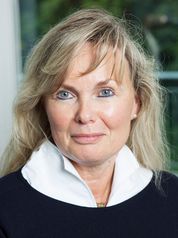Atmosphere-Ocean changes in the Southeast Pacific
Coordinator
Dr. Doris Meyerdierks, HWK
Speaker
Prof. Dr. Carina Lange, Universidad de Concepción and HWK Fellow
Members
- Dr. Helge Arz, IOW, Warnemünde
- Prof. Dr. Dierk Hebbeln, MARUM, University of Bremen
- Dr. Jerôme Kaiser, IOW, Warnemünde
- Dr. Rolf Kilian, Trier University
- Dr. Gregor Knorr, AWI, Bremerhaven
- Dr. Frank Lamy, AWI, Bremerhaven
- Dr. Katharina Pahnke, Max-Planck-Research Group, ICBM, University of Oldenburg
- Prof. Dr. Frank Schäbitz, University of Cologne
Junior Researchers
- Dr. James Collins, Postdoctoral fellow, AWI, Bremerhaven
- Dr. Lorena Rebolledo, Junior Scientist, Universidad de Concepción
Invited Fellow
- Prof. Dr. Silvio Pantoja, Universidad de Concepción
Duration
2014 - 2016
Statement of Problem
The Study Group addresses climatic and oceanographic reconstructions from the Southeastern (SE) Pacific focusing on Late Quaternary variability, including high-resolution studies of the Holocene and land-ocean interactions. This group brings together specialists in marine geology, paleoceanography, paleoecology, biogeochemistry, climate research, development of new proxies, and modelling.
Atmosphere-ocean interactions in high latitudes play an important role for understanding processes and feedbacks of past and future climate change. These interactions are believed to control sea-ice cover, upper ocean stratification, biological nutrient utilization, and exposure rates of deep-water, all of which have been considered to play a key role for explaining the variability in atmospheric CO2 concentrations.
The SE Pacific region and particularly the continental margin of southern South America, including the fjord region, offer a unique opportunity to study atmosphere-ocean changes at time-scales otherwise difficult to access in the Southern Ocean realm. This includes, for example, the potential of reconstructing paleoceanographic changes over the last glacial/ interglacial cycle at millennial time-scales based on sediment records from the southernmost Chilean continental slope close to the entrance of the Drake Passage. Moreover, ultra high resolution sediment records are available in particular within the fjords of southern Chile. Such records are very useful for extending the few available instrumental climate time series at polar and subpolar latitudes which cover only the past few decades and thus miss a long-term perspective. Such perspective is, however, crucial for distinguishing natural and anthropogenic climate changes.
Aims/ Products
The group aims at consolidating and maintaining a group dedicated to multidisciplinary research in oceanography/ climate, in particular of the SE Pacific, and providing much needed insights into SE Pacific natural climate variability.
Products include integrative publications in international journals and presentations at climate-ocean conferences in Germany, Chile and abroad.
Events
The Study Group’s constitutive workshop took place from 22-24 October 2014 at the Hanse-Wissenschaftskolleg. Next workshops are planned as well as a small international congress.


